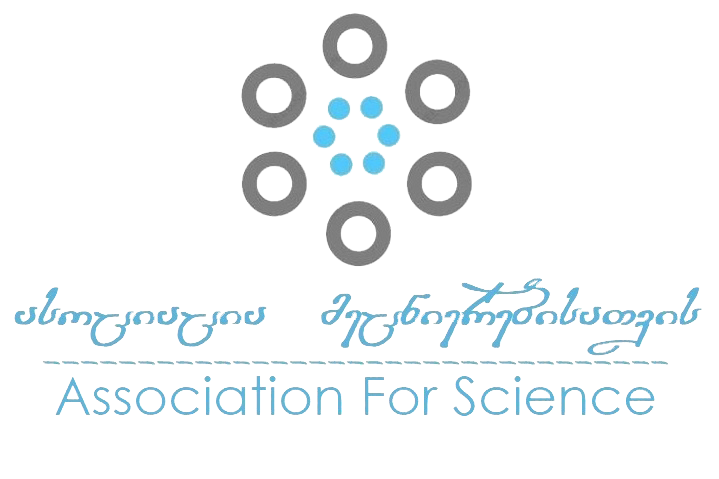The physiological process of stress and anxiety in early age kids and school children and ways to overcome them.
DOI:
https://doi.org/10.52340/sou.2023.19.51Keywords:
children, early, school, age, anxiety, stress, physiology, process, way of copingAbstract
In today’s world stress plays an important role. It affects a person's behavior, health, emotional, mental, cognitive qualities, basic skills, and personality formation.The article discusses the conditions of anxiety and stress reactions in young and school-age children, integral adaptive reactions, positive and negative effects of stress, as well as various ways to manage it.Although the stress response is naturally and genetically driven by the involvement of coded adaptive mechanisms in our body, it makes the child's body particularly mobilized and able to fight in a dangerous situation and facilitates the process of adaptation to a changing environment. It is considered a biologically positive, adaptive reaction of an integral nature, which increases the body's resistance to various pathogenic factors. But, if the balance between the active state and rest state is disturbed, ie when there is no balance between tension and relaxation, then the negative reactions of excessive stress lead to the depletion of adaptive reserves in the body and the reduction of specific and nonspecific reversal, leading to physical decline and psychological damage. Negative effects of stress such as headaches and abdominal pain, sleep-wake phase disorders, and excessive crying or eating problems are common in children. It all starts in infancy and continues throughout kindergarten and school. This condition can prevent the formation of normal growth and development of adaptation mechanisms in the child's body. In order for a genetically determined potential to be fully manifested, a child needs an appropriate environment - love and warmth, attention, encouragement and mental stimulation, adequate nutrition, and high-quality health care. At this age, the relationship between parent and child, parental involvement, and developmental stimulation is particularly important. Stimulation involves interacting with parents, and family members, looking at different things, coloring, listening, walking, and, of course, playing. Stable relationships, time spent with family, and rituals help children feel more secure and help them cope with difficult situations. Newborns and school-age children especially need constant attention and love. They need the feeling that someone is with them, understands their fears, cares for them, and expresses great love for them. If this does not happen, then negative stress will appear, and children will feel abandoned, and depressed, which is a hard and dangerous situation for a child to be in. There are several ways to relieve constant anxiety and tension: for example, engaging in sports and dancing, (children should engage in 30 minutes of physical activity, which leads to an increase in endorphin levels and a decrease in cortisol levels). By engaging in different activities, the child will be able to adequately expend the energy accumulated during the day, and gain communication skills and self-confidence in an informal environment. Also, regular exercise reduces stress and anxiety over the long term. The anti-stress factor of walking is physical activity, which increases the level of endorphins, as well as being in the green zone significantly improves emotional endurance and reduces stress, proper breathing exercises also reduce stress. Listening to soothing music, we will get a better result if they commit themselves to any musical instrument because at this time children also use physical force. It is desirable to eliminate distractions, and useless modern technologies (mobile, telephone, and computer), avoid watching negative content movies and programs, eat well - rationally, create pleasant relationships with family and peers, as well as have frequent connections with their loved ones. With people, which will help to avoid the physiological processes of anxiety and stress.
References
ახალაძე, ხანანაშვილი, ჩიხლაძე (2011:) ახალაძე ლ. ხანანაშვილი მ. ჩიხლაძე მ., კორტიზოლის მაჩვენებლის ცვლილებები განსხვავებული სირთულის თავდაცვითი რეაქციების ტესტირებისას. სოხუმის უნივერსიტეტის შრომები X. საბუნებისმეტყველო მეცნიერებეთა სერია. თბილისი,.გვ. 58-66.
კოლპაკოვა, 2012: კოლპაკოვა ალინა. სკოლის მოსწავლეებში სტრესის მიზეზები, მათი გავლენა სხეულზე და სტრესული სიტუაციებიდან გამოსვლის გზები - ყაზახეთის რესპუბლიკის განათლებისა და მეცნიერების სამინისტრო. ქალაქ რუდნის აკიმატის სახელმწიფო დაწესებულება „რუდნის ქალაქის განათლების დეპარტამენტი“;
ხანანაშვილი (2008) ხანანაშვილი მიხეილი. ინფორმაციული სტრესი. საქართველოს მეცნიერებათა ეროვნული აკადემიის გამომცემლობა. თბილისი;
Buckhalt (2014) Joseph A. Buckhalt. Children’ s Sleep, Sleepiness, and Performance on Cognitive Tasks – PubMed Central (PMC) . National Library of Medicine. WMF Press Bull. 30.11. 2014. ხელმისაწვდომია საიტზე: https://www.ncbi.nlm.nih.gov/pmc/articles/PMC4180085/
Molano (2020) Jennifer Rose V. Molano. Creating Better Sleep Habits to Stre¬ng¬then Immunity – Tips for maintaining sleep. Departament of Nevrology and Rehabilitation Medicine, University of Cincinnati College of Medicine. 15. 03 .2020. ხელმისაწვდომია საიტზე: https://www.uchealth.com/en/media-room/covid-19/better-sleep-habits-to-strengthen-immunity
Halber (2009) Deborah Halber. Sleep Helps build long-term memories – Picower Institute study strengthens link between sleep, memory formation. Massachusetts Institute of Technology. 24.07.2009. ხელმისაწვდომია საიტზე: https://news.mit.edu/2009/memories-0624
Tsigos, Kyrou, Kassi, Chrousos (2020) Constantine Tsigos, Ioannis Kyrou, Eva Ka¬ssi, and George P. Chrousos. Stress: Endocrine Physiology and Pathophysiology. Endotext (Internet) . www.endotext.org . PubMed Central (PMC) . National Library of Medicine. 17.11. 2020. ხელმისაწვდომია საიტზე: https://www.nc-bi.nlm.nih.gov/books/NBK278995/
Chrousos (1992) Chrousos GP.,Regulation and dysregulation of the hypothalamic-pituitary-adrenal axis.The corticotropin-releasing hormone perspective. Endocrinol Metab Clin North Am’
Tsigos, Chrousos (1994) Tsigos C, Chrousos Gp. Physiology of the hypothalamic-pituitary-adrenal axis in health and dysregulation in psychiatric and autoimmune disorders. Endocrinol Metab Clin North Am. 1994 1994 Sep;23(3):451-66. ხელმისაწვდომია საიტზე: https:/-/pubmed.ncbi.nlm.nih.gov/7805648/
Schulz, Laessle (2012) Schulz S, Laessle RG. Stress-induced laboratory eating behavior in obese women with binge eating disorder.Appetite. 2012;



